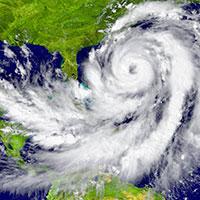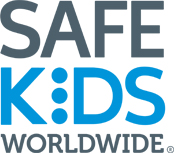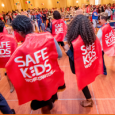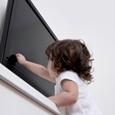Weather or Not, 2020 Hurricane Season is Coming

Here’s a new definition of an active hurricane – it only takes one hurricane making landfall in your area to make it an active hurricane season. Last season, with Hurricanes Harvey and Irma we saw the costliest (Harvey) and the strongest (Irma) come ashore. And millions of lives were impacted and hundreds of lives lost.
This year as Hurricane Preparedness Week kicks off on May 6th, it’s a good time to reflect on being prepared, staying informed, and helping prepare your community.
Hurricanes, sometimes known as tropical cyclones, are the most extreme of weather events. The majority of lives lost during these weather events are due to inland flooding or storm surge, not direct coastal impact. We can predict with some fair certainty and accuracy the landfall, time frame and severity of the event. Meteorologists and government agencies have structured when hurricane watches and warnings are issued to give the public enough time to prepare and evacuate if necessary.
Our job to keep our kids and family safe is to be ready for such an emergency.
Let’s start with the things you need to do to prepare for hurricane season:
- Create a preparedness plan for you and your family – be sure to make plans for your kids, any seniors, all your pets, and livestock. Check out ready.gov to prepare. Making a checklist for everyone in your house is a simple thing but helps so much when you are faced with a hurricane or any other natural disaster.
- Know your evacuation route. Know where you will be sheltering during the storm – is it with friends? A public shelter? In a hotel? Make those decisions ahead of time so you will have less stress as you deal with evacuation traffic.
- Appoint a family communicator who knows your communication plan – think of this as the traffic controller at an airport who can coordinate reunification, inform other family members of your plan, and can help you with your needs. Make sure your immediate family knows who the family communicator by adding their contact information into their mobile phones.
- Use social media apps to mark you and your family safe during a hurricane to let friends know you are safe.
- Have a plan for returning home - it may be days maybe even in some extreme cases, weeks before you return home. Listen to first responders and Emergency Management personnel on entering a storm-damaged area. Often, these areas are restricted entry for a limited amount of time when first re-opened. It may not be safe to have the entire family there.
How to Help in Your Community
There are simple things you can do to help your community during a hurricane that don’t require a lot of extra work. Being prepared is the most important thing you can do to help everyone in the community. But here are some other ways to help:
- If there are seniors in your neighborhood, help them prepare a preparedness plan. Print an extra checklist and share with them.
- If you know of someone who doesn’t have a car or is disabled, ask them if they have an evacuation plan. If not, help them check in with a local fire or police department or a social services agency to see if there will be evacuation options available.
- If you volunteer with a community organization, they may need your help prior to a hurricane to help. Animal rescues and shelters, libraries and nursing homes may be grateful for an extra set of hands if you are prepared and able to help. So may local farms who often can’t evacuate livestock or may need help securing their facility.
- If you want to go to the next level, consider volunteering with one of the many local organizations who are on the ground responding to emergencies.
Safe Kids on the Ground
Your local Safe Kids coalitions are a wonderful source of official news and information during a hurricane emergency. Many are based within first responder agencies or local hospitals and will be an additional source of information. Most Safe Kids coalitions have a Facebook page that you can follow for local updates. Our coalitions are also very active post-disaster to help families recover. We encourage you to find your local Safe Kids and follow them on Facebook and Twitter.
Hurricane Preparation - Before AND After
This infographic from The CDC does a great job to illustrate the areas you need to focus on preparing for a hurricane before AND after it hits.
This blog was written by Kristin Iden.





